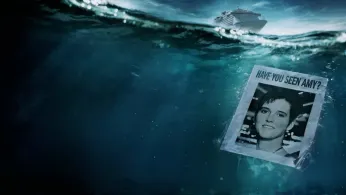
4 hours ago
Netflix Reopens the 1998 Amy Bradley Cold Case, Shining New Light on Missing Lesbian Cruise Passenger
READ TIME: 3 MIN.
More than two decades after the mysterious disappearance of Amy Lynn Bradley, a new Netflix documentary series, "Amy Bradley is Missing," is prompting renewed public interest and sparking conversations about cruise ship safety, missing persons, and the unique vulnerabilities faced by LGBTQ+ travelers. The three-part series, which premiered in July 2025, reconstructs the night of March 24, 1998, when Amy—only 23 years old at the time—vanished without a trace from the Rhapsody of the Seas cruise ship while it was docked near the Caribbean island of Curaçao .
Amy Bradley, a recent college graduate, was traveling with her parents and younger brother on what was meant to be a celebratory family vacation. She was last seen in the early hours, resting on her cabin balcony after an evening of dancing at the ship’s nightclub. When her father checked on her the next morning, Amy was gone—leaving behind only her sandals and a shirt. Despite an immediate search by the family and the ship’s crew, no sign of Amy was found. The FBI became involved, and the case quickly gained international attention due to the baffling circumstances and lack of evidence .
The Netflix series features interviews with Amy’s family, FBI agents, and cruise ship personnel, weaving together personal accounts and investigative details. According to reviewers, the show’s concise structure and chronological storytelling highlight not just the facts of the case, but the emotional toll on those left behind .
Amy Bradley’s story resonates powerfully within LGBTQ+ communities, particularly because Amy was an openly lesbian woman at a time when acceptance was less widespread than today. Her disappearance underscores the unique risks that LGBTQ+ people can face during travel, especially in environments where legal protections or cultural acceptance may be limited.
The documentary addresses issues of cruise ship safety, the complexities of investigating missing persons at sea, and the lack of clear protocols for supporting LGBTQ+ travelers and their families during crises. It also raises questions about whether biases in the initial investigation may have hampered efforts to find Amy or fully consider all possible scenarios, a concern often echoed in cases involving marginalized groups .
The Bradleys’ tireless search for Amy has spanned continents and decades. The family has followed up on reported sightings of Amy in various Caribbean locations and pursued every lead, however tenuous. The new Netflix series gives voice to their enduring hope and their frustration with gaps in both the investigation and cruise industry accountability .
Netflix’s platform has elevated the case to global attention, prompting renewed calls for action from viewers and advocates. Online conversations following the premiere reveal widespread outrage over the unanswered questions and a growing awareness of the systemic challenges involved in investigating disappearances at sea .
For many in the LGBTQ+ community, Amy Bradley’s story is a reminder of the importance of visibility, advocacy, and the need for travel industries to adopt inclusive safety measures. The documentary encourages viewers to consider the real-life implications for LGBTQ+ travelers and the ongoing need for robust support networks when things go wrong.
The series has also reignited conversations around the protocols for investigating missing persons on international waters, the responsibilities of cruise operators, and the intersectional challenges faced by marginalized individuals in crisis situations .
As "Amy Bradley is Missing" continues to reach audiences worldwide, advocates hope that the renewed focus will lead to policy changes, improved safety standards, and greater justice—not only for Amy, but for all those who remain missing and for their loved ones who continue to search for answers.






